We may earn money or products from the companies mentioned in this post. This means if you click on the link and purchase the item, I will receive a small commission at no extra cost to you … you’re just helping re-supply our family’s travel fund.
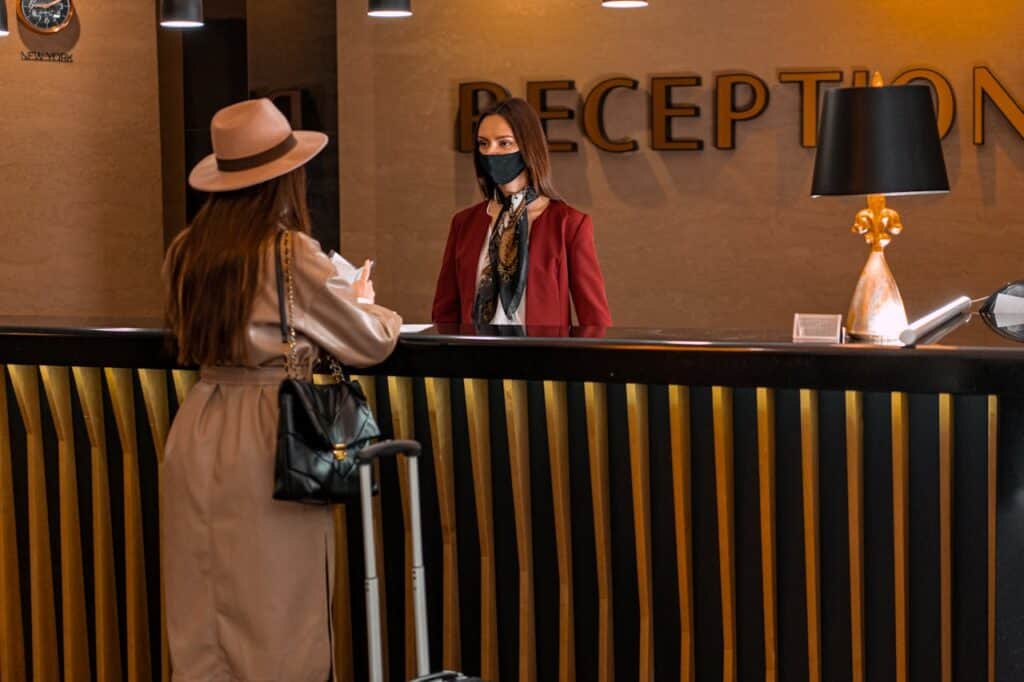
Hotels often look polished on the surface, but many find creative ways to squeeze more money from their guests. Beyond the nightly rate, charges for amenities, services, or fine print in the booking can quietly add up. Some are disguised as “convenience” fees, while others hide in plain sight. What seems like a small expense can snowball into a costly stay. Here are 13 common tricks hotels use to overcharge without most travelers realizing until checkout.
1. Resort Fees
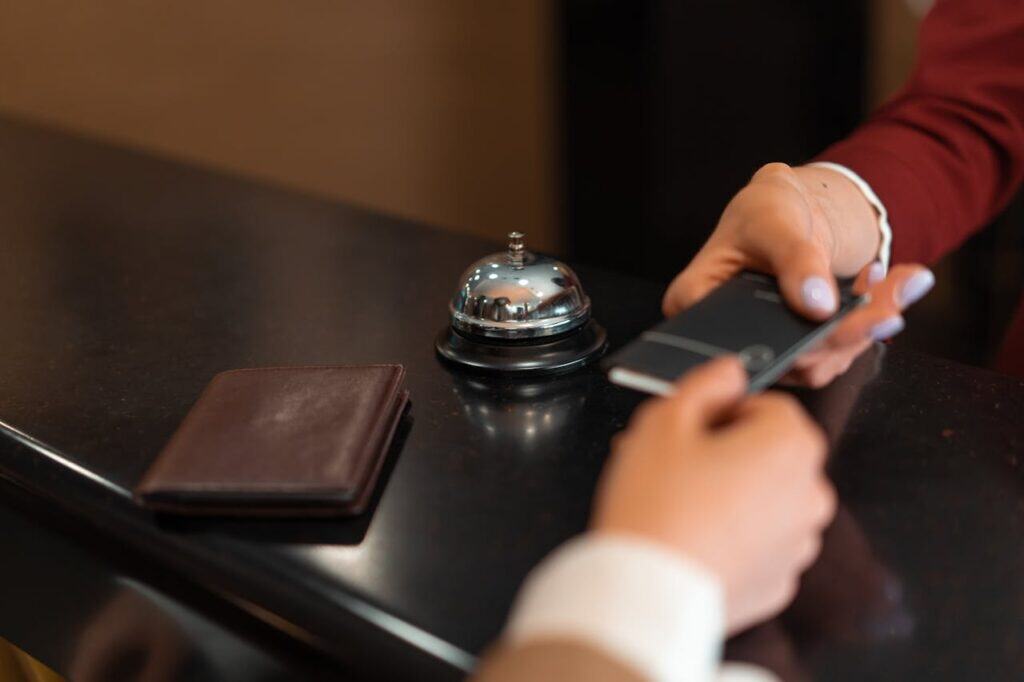
Resort fees are one of the most common ways hotels quietly add to your bill. These charges often cover amenities like pools, gyms, or Wi-Fi, even if you don’t use them. They’re usually not included in the advertised room rate, which makes the price look cheaper during booking. Only at checkout do guests realize the extra daily cost. Since these fees are mandatory, you can’t refuse them. It’s a tactic hotels use to stay competitive on booking sites while still collecting more revenue.
2. Early Check-In Fees

Arriving a few hours before standard check-in time might seem harmless, but many hotels now charge a fee for the convenience. The practice is marketed as offering flexibility, but in reality, it’s just another way to add to the final bill. Even if the room is already cleaned and available, the desk staff may still enforce the charge. Travelers who are tired from flights or long drives often pay it rather than wait, making it an easy profit generator for the hotel.
3. Late Checkout Fees

Wanting to stay in your room an hour or two past checkout can cost you more than you’d expect. Hotels often charge steep fees for late departures, even when the room isn’t needed immediately. Guests are encouraged to pay up to avoid rushing, especially on travel days with odd flight times. While it’s sometimes negotiable, hotels count on the fact that most people prefer convenience and will accept the extra cost. What feels like flexibility is really a hidden money-maker.
4. Mini-Bar Markups

The mini-bar is infamous for its outrageous markups. A bottle of water that costs a dollar outside might be priced at five or six inside the room. Snacks and drinks often carry similar margins. Some hotels even use sensors that charge you automatically if items are moved, regardless of whether you consume them. After a long day, tired guests often grab what’s convenient without checking prices. This reliance on impulse purchases makes mini-bars one of the most profitable traps for hotels.
5. Parking Fees
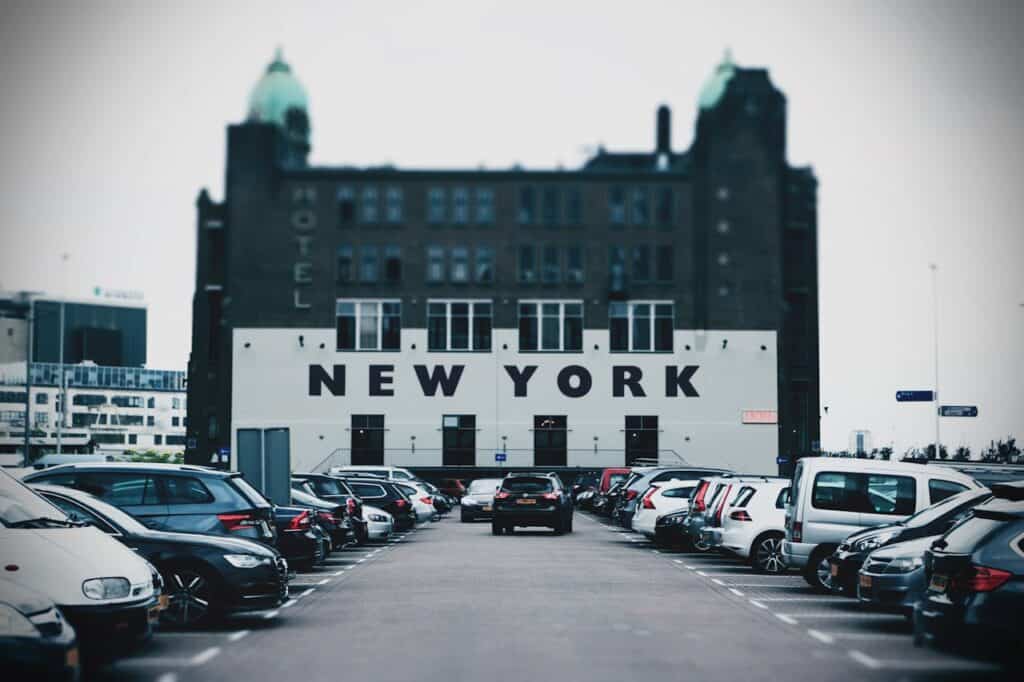
Parking at hotels can be surprisingly expensive, even if the property has its own lot. Many hotels charge nightly rates for self-parking or valet services, which adds up quickly for longer stays. These fees aren’t always highlighted during booking, so they catch guests off guard. In busy cities or tourist areas, the costs can rival what you’d pay for an additional night. Since most travelers need their car nearby, hotels know parking is a necessary expense and price it accordingly.
6. Wi-Fi Charges

In an age where connectivity feels basic, some hotels still charge for Wi-Fi. Even worse, they may offer a slow, complimentary version while reserving faster speeds for a premium fee. Guests expecting free access are often frustrated when reliable service comes at an extra cost. Business travelers, who rely heavily on stable connections, are the most affected. Since Wi-Fi is non-negotiable for most, hotels can present it as an optional upgrade when in reality, it’s closer to a mandatory expense.
7. Baggage Holding Fees
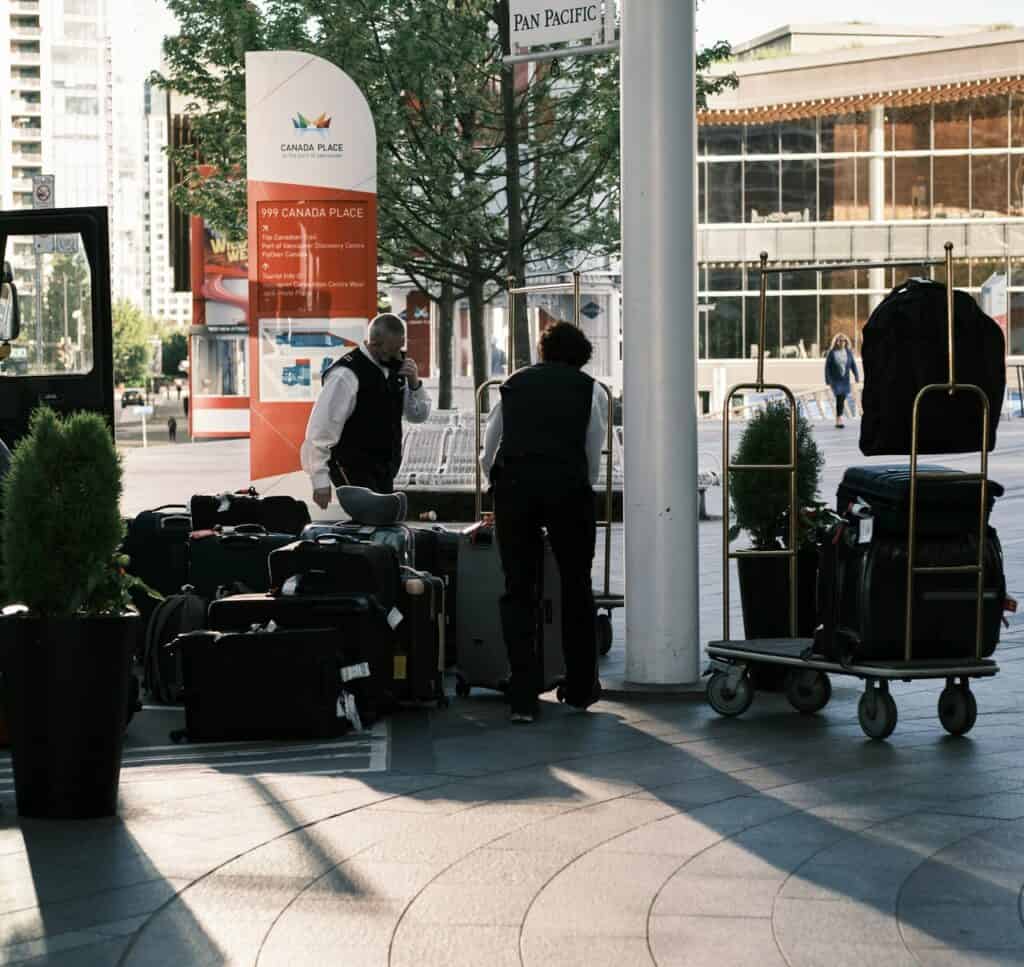
If you arrive early or leave late, hotels may offer to hold your luggage; but sometimes at a cost. What was once a courtesy service has become a revenue stream at certain properties. Even though storing a bag in a secure room requires little effort, the fee can range from a few dollars to much more, depending on location. Since travelers rarely have another option, especially in big cities, they often pay up. This small but irritating charge quietly pads the bill.
8. Housekeeping Gratuities Added Automatically
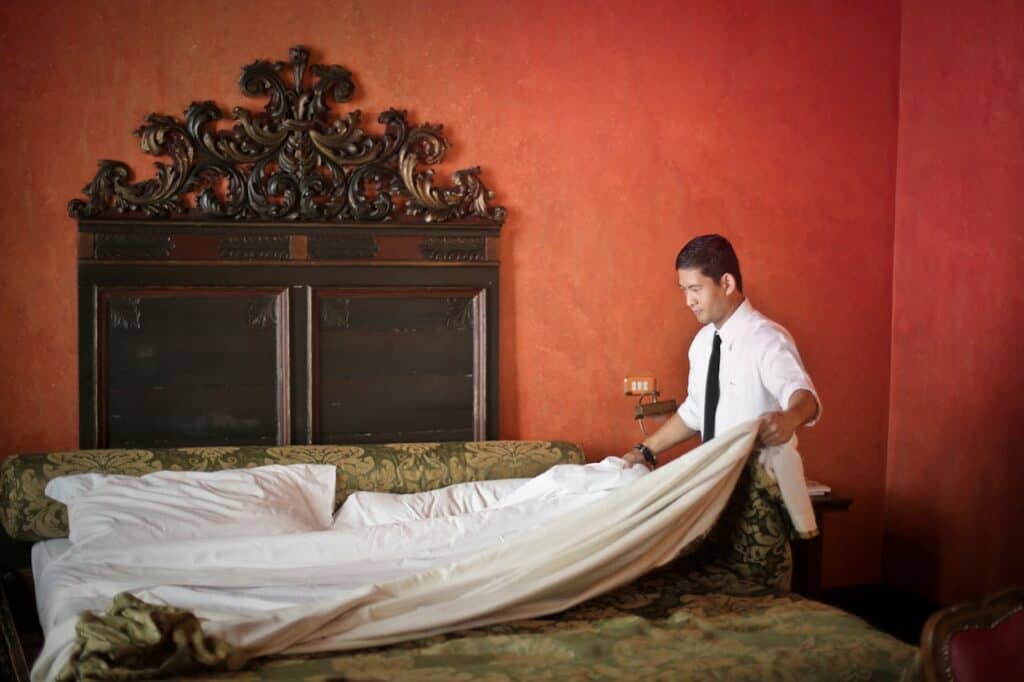
While tipping housekeeping staff is customary, some hotels now add “housekeeping gratuities” directly to the bill. Guests often don’t notice the line item until reviewing charges at checkout. The problem isn’t the tip itself, but the lack of transparency. Many assume tipping is optional, and they may not realize they’ve already been charged. Hotels rely on this oversight, and some guests even end up tipping twice. What feels like a gesture of appreciation becomes another way to squeeze more money.
9. Phone Call Charges

Despite most travelers using cell phones, many hotels still charge premium rates for in-room calls. Even local calls can carry surprising fees, sometimes several dollars per minute. Guests who pick up the phone for a quick call to a restaurant or service often don’t know the charges until checkout. These costs feel outdated in the smartphone era, but hotels keep them in place because some travelers; especially international ones, still fall into the trap. It’s a classic example of an obsolete but profitable fee.
10. Laundry and Dry-Cleaning Services
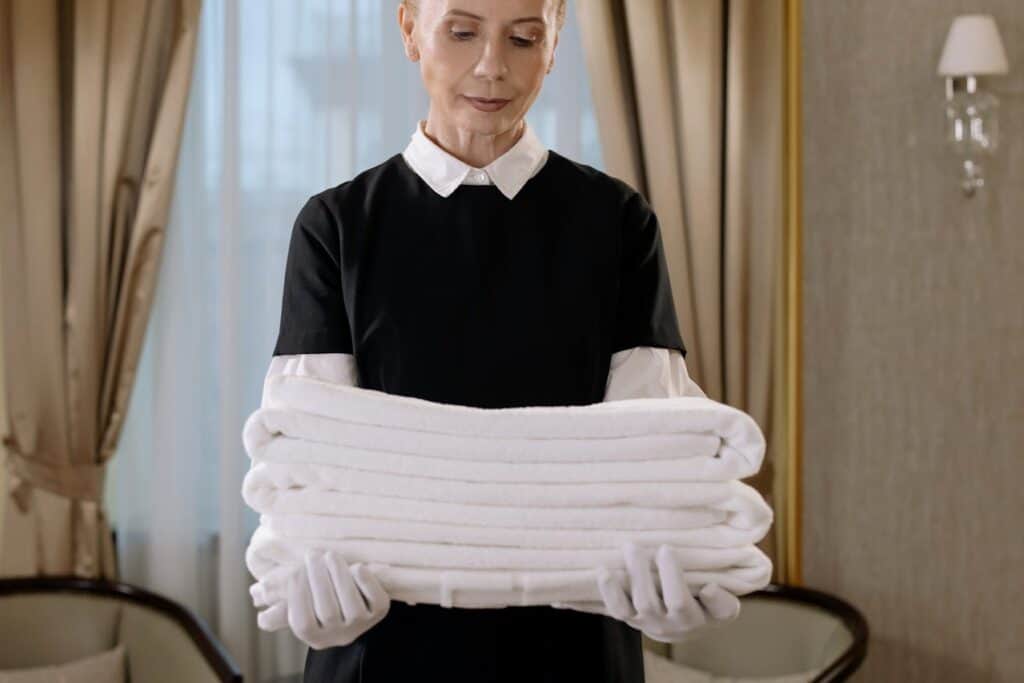
Hotel laundry services are notoriously expensive, with simple items like socks or t-shirts costing several times more than local cleaners. Many guests use them out of convenience, especially during longer trips when fresh clothes are essential. Hotels take advantage of this urgency by setting high prices and framing it as a premium service. While useful in emergencies, the cost is rarely proportional to the work involved. For travelers, the bill often becomes an unpleasant surprise when they see the charges.
11. In-Room Safe Fees
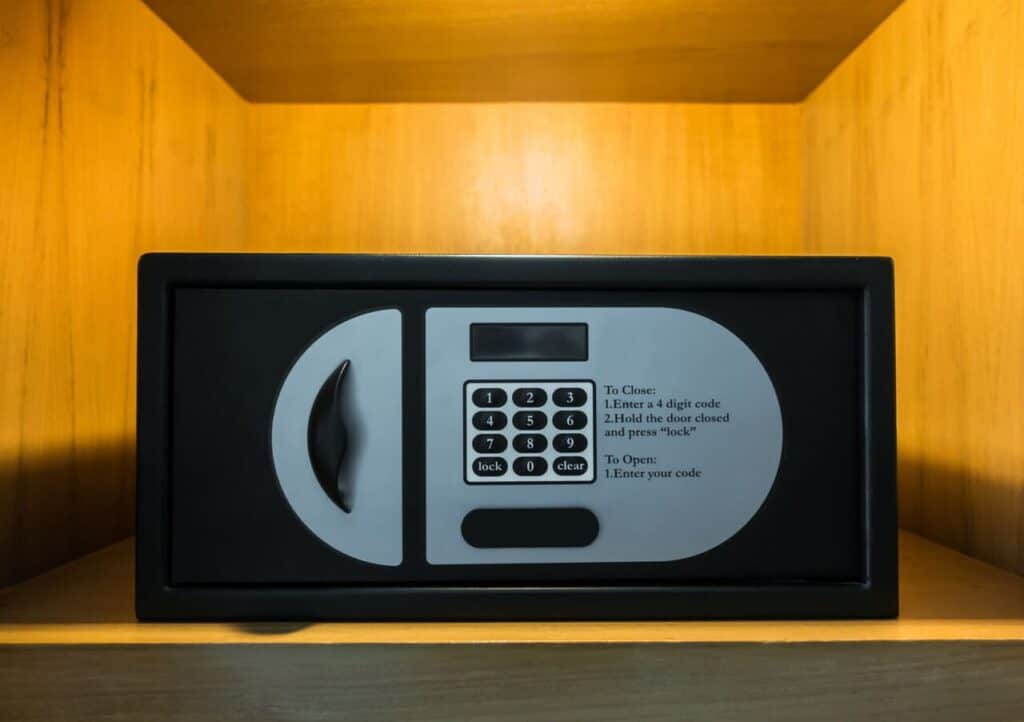
Some hotels charge a daily fee simply for having an in-room safe, whether you use it or not. The cost is typically small, but over the course of a stay, it adds up. Since safes are marketed as a security feature, most guests don’t question the charge. It’s an easy fee to overlook, often buried in the final bill. Hotels count on people not disputing small amounts, and the revenue becomes significant when multiplied across hundreds of rooms.
12. Fitness Center Fees

Access to the fitness center is often listed as an amenity, but some hotels sneak in a daily fee for its use. Even if you never step foot inside, the charge can appear on your bill under facility or wellness fees. It’s frustrating because these spaces are usually simple rooms with basic equipment. While guests assume the gym is complimentary, hotels treat it as another profit opportunity. Unless you read the fine print, you may not notice until it’s too late.
13. Mandatory Service Charges

Mandatory service charges are often disguised as tips or staff support fees. Unlike traditional gratuities, these charges aren’t optional and may apply even if you didn’t use certain services. They’re commonly added at resorts or full-service hotels where staff interactions are limited. Because they’re grouped with legitimate taxes and fees, many guests don’t realize they’re paying them until checkout. It’s a subtle way hotels increase revenue while making the expense look like part of standard operating costs.
Other Blog Posts You Might Enjoy
www.idyllicpursuit.com (Article Sourced Website)
#Ways #Hotels #Quietly #Overcharge #Guests #Author #Kathy #Haan
